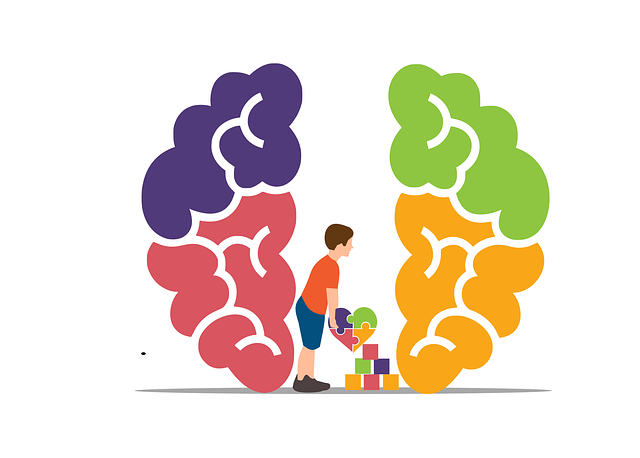Highlands Ranch American Sign Language Therapy (HRASLT) advocates for mental health policy reform by analyzing regulations and funding mechanisms, promoting evidence-based practices, and enhancing access to quality care. Their strategic approach addresses the unique communication needs of the deaf and hard-of-hearing community, driving positive change in mental health services. The organization's efforts bridge gaps and inequities in care, ensuring equitable access to quality mental health services for diverse populations through cultural sensitivity training, community outreach, and burnout prevention for healthcare workers. Local programs like HRASLT serve as models for future advocacy, encouraging the implementation of community outreach programs to revolutionize mental health services.
Mental health policy analysis and advocacy are crucial components of ensuring equitable access to quality care. This comprehensive guide explores various aspects of mental health governance, with a focus on the unique benefits of Highlands Ranch American Sign Language (ASL) therapy. By examining current services, we identify gaps and inequities, offering strategic insights for policy improvement. The article also highlights successful advocacy efforts, providing a roadmap for future initiatives aimed at enhancing mental well-being in communities like Highlands Ranch.
- Understanding Mental Health Policy: A Foundation for Advocacy
- The Impact of American Sign Language Therapy in Highlands Ranch
- Identifying Gaps and Inequities in Current Mental Health Services
- Building Effective Policies: Strategies for Improvement
- Advocacy in Action: Success Stories and Future Directions
Understanding Mental Health Policy: A Foundation for Advocacy

Understanding Mental health policy forms the very foundation upon which advocacy efforts can be effectively directed. It’s essential for advocates, like those from Highlands Ranch American Sign Language Therapy, to grasp the intricate web of regulations, guidelines, and funding mechanisms that shape mental healthcare services. By delving into this domain, they can identify gaps, inequities, and areas needing improvement in current policies, thereby informing their advocacy strategies.
Mental Health Policy Analysis and Advocacy is a powerful tool for driving positive change. Through rigorous analysis, advocates can promote evidence-based practices, enhance access to quality care, and foster the development of coping skills. This process encourages not just Positive Thinking but also ensures that individuals across diverse communities receive the support they need to navigate life’s challenges, ultimately leading to improved mental well-being.
The Impact of American Sign Language Therapy in Highlands Ranch

In Highlands Ranch, American Sign Language (ASL) therapy has emerged as a transformative tool within mental health policy and practice. This unique approach addresses the distinct communication needs of the deaf and hard-of-hearing community, ensuring they receive culturally sensitive and effective care. The implementation of ASL therapy in local mental health services enhances accessibility and inclusivity, recognizing the critical role that language plays in fostering trust and open communication, which is essential for successful therapy.
Highlands Ranch’s commitment to integrating ASL therapy demonstrates a progressive mindset in mental health advocacy. It encourages the development of specialized programs like tailored Mental Health Education Programs Design and Public Awareness Campaigns Development focused on the deaf population. Moreover, by training mental health professionals in risk assessment techniques specific to this community, as part of their ongoing professional development, the region is enhancing safety measures. This holistic approach ensures that individuals in Highlands Ranch who rely on ASL have access to comprehensive mental wellness support tailored to their linguistic and cultural backgrounds.
Identifying Gaps and Inequities in Current Mental Health Services

In analyzing the current mental health services landscape, particularly in areas like Highlands Ranch, it’s evident that significant gaps and inequities persist. While resources are available, access is unevenly distributed, leading to disparities in care for diverse populations. For instance, individuals from minority backgrounds often face barriers such as limited cultural sensitivity in mental healthcare practice, hindering their ability to receive appropriate therapy. The absence of specialized services, like American Sign Language (ASL) therapy, further exacerbates these issues. This lack of accessibility not only fails to meet the unique needs of specific communities but also contributes to worse outcomes and increased risk of untreated mental health conditions.
Moreover, a thorough review of risk management planning for mental health professionals reveals inadequate safety nets for those who bear the brunt of this care. Community outreach program implementation is another area requiring urgent attention. By integrating initiatives that promote cultural sensitivity in mental healthcare practice and enhancing community engagement, it’s possible to bridge these gaps. Such efforts not only ensure equitable access to quality mental health services but also foster a more inclusive environment where all individuals can receive the support they need for their well-being.
Building Effective Policies: Strategies for Improvement

In crafting effective mental health policies, it’s essential to integrate strategies that cater to diverse communities, such as those offered by Highlands Ranch American Sign Language Therapy. This involves ensuring accessibility and cultural competency within healthcare systems, particularly through training programs for providers. Implementing Healthcare Provider Cultural Competency Training can significantly enhance patient care, especially when serving ethnic and linguistic minorities. Such initiatives foster an inclusive environment, reducing potential barriers to mental health services.
Moreover, burnout prevention strategies for healthcare providers are vital to sustain a robust mental health care system. This includes promoting work-life balance, providing support networks, and encouraging self-care practices. Community outreach programs play a complementary role by raising awareness about mental health issues and available resources. For instance, organizing educational workshops or cultural events can facilitate conversations around mental wellness, ultimately leading to improved policy outcomes and well-being for all residents.
Advocacy in Action: Success Stories and Future Directions

In recent years, mental health advocacy has seen remarkable victories, with initiatives like the Highlands Ranch American Sign Language (ASL) Therapy program gaining traction. This innovative approach to therapy not only enhances access to care but also underscores the power of tailored communication strategies for diverse communities. By focusing on Coping Skills Development, the program empowers individuals to navigate life’s challenges more effectively. The success of such local initiatives provides a blueprint for future mental health policy advocacy, inspiring the implementation of Community Outreach Programs that bridge the gap between support and those in need.
Looking ahead, integrating these successful models into broader healthcare policies is paramount. Effective Communication Strategies, honed through programs like the ASL Therapy initiative, can revolutionize mental health services delivery, ensuring inclusivity and accessibility. This direction not only promises improved outcomes for individuals but also fosters a more supportive societal environment where everyone has the tools to maintain and enhance their mental well-being.
Mental health policy analysis and advocacy are vital components of creating a more inclusive and supportive society, especially in areas like Highlands Ranch where access to unique services, such as American Sign Language (ASL) therapy, can significantly impact well-being. By identifying gaps and inequities in current mental health services, we can develop effective policies that foster better care. The success of ASL therapy in Highlands Ranch serves as a testament to the power of tailored interventions, highlighting the need for more diverse and accessible mental health resources. Looking ahead, advocacy efforts should continue to drive policy changes, ensuring that everyone, regardless of their background or communication preferences, has equal opportunities to thrive and seek support when needed.












